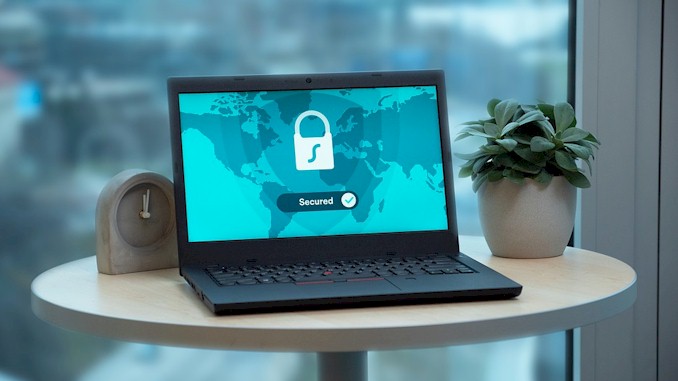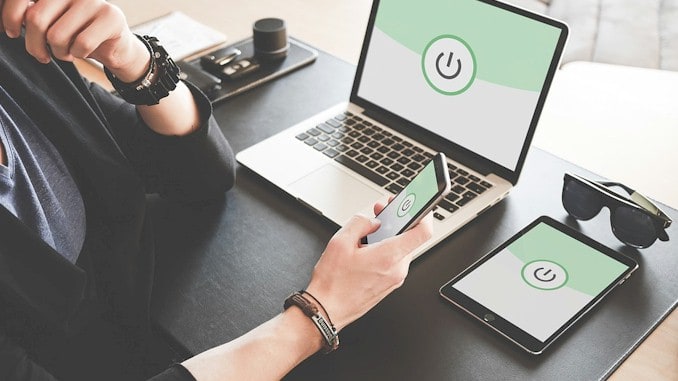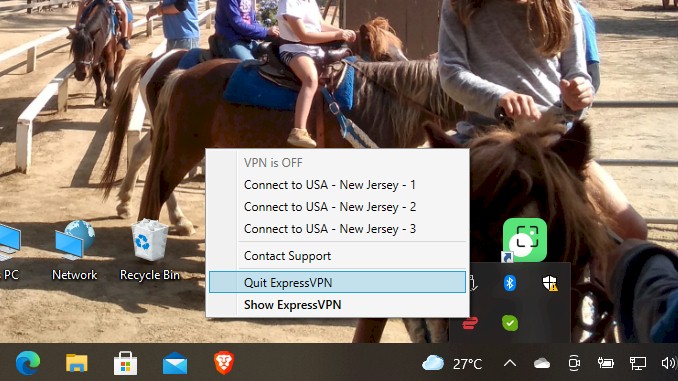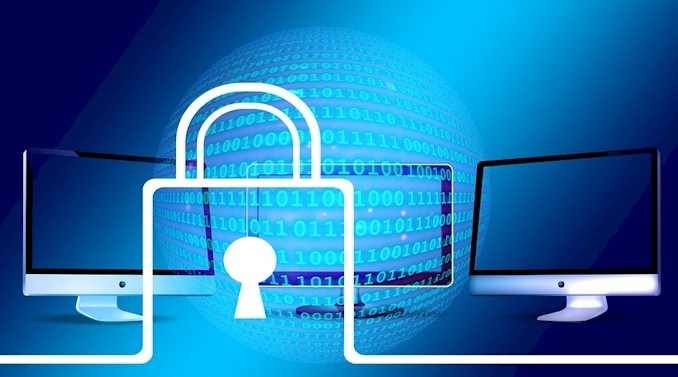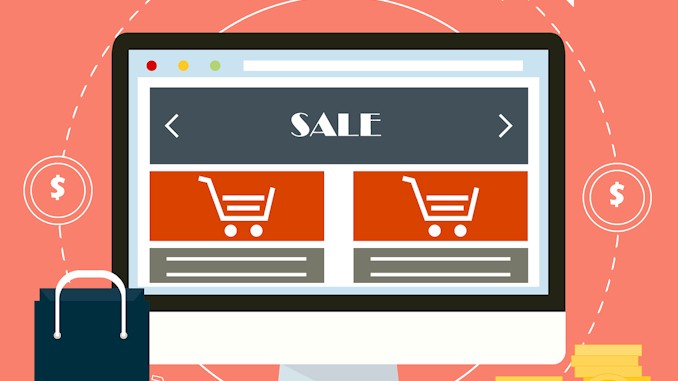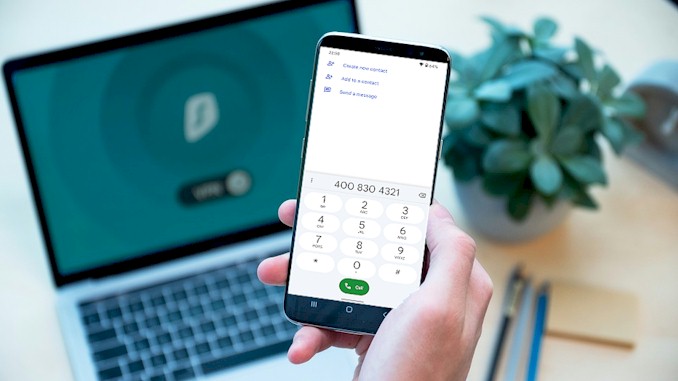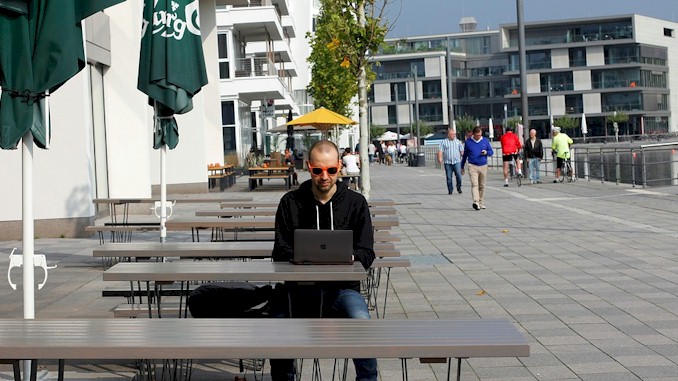Is VPN Safe? Understanding the Risks and Ensuring Online Security
Do you ever worry about your stuff staying safe when you’re online? Maybe you’ve heard of something called a VPN, which stands for Virtual Private Network. It’s like a secret tunnel that helps keep your things safe while you’re on the internet. But is using a VPN safe? How do you know if the people who make it are good? And are there any bad things that could happen if you use one? I’m here to help answer those questions. I’ve looked into this stuff a lot and tried out different VPNs. So, I’ll share what I’ve learned to help you stay safe online. Plus, I’ll give you some easy tips on how to pick the right VPN for you.
VPNs are generally safe to use when used correctly. A VPN is a technology that creates a secure and encrypted connection between a user’s device and a remote server, usually operated by a VPN provider. A VPN can enhance the user’s online security by hiding their IP address, encrypting their traffic, and bypassing censorship and geo-restrictions. However, a VPN is not inherently safe, and the user’s privacy and security depend largely on the quality and trustworthiness of the VPN provider and the configuration of the VPN service.
In this blog post, I will explain in detail how VPNs work, what are the benefits and drawbacks of using a VPN, and how to choose a VPN that meets your expectations and requirements. I will also share with you some of the best VPN services that I have personally tested and reviewed, and that offer high-quality features and performance. By the end of this post, you will have a clear understanding of what VPNs are, how they can help you protect your online privacy and security, and what to look for when choosing a VPN provider.
What is a VPN and How Does It Work?
A VPN, or Virtual Private Network, is a technology that creates a secure and encrypted connection between your device and a remote server, usually operated by a VPN provider. A VPN allows you to access the internet as if you were in a different location, by routing your traffic through the server. This can help you bypass censorship and geo-restrictions, as well as hide your IP address and online activity from your internet service provider (ISP), government agencies, hackers, and other third parties.
Let’s talk about how a VPN works with a simple story. Imagine you’re in New York, and you really want to watch a show on BBC iPlayer, but it’s only available in the UK. Uh-oh! Without a VPN, when you try to watch it, your computer sends a message straight to your internet company (ISP), which then sends it over to the BBC iPlayer in the UK. But here’s the tricky part – while it’s traveling, anyone snooping around could peek at your stuff, like where you are, what you’ve been looking at online, and other personal stuff. Not cool!
Now, because the BBC iPlayer knows you’re not in the UK based on your computer’s address, it says, “Sorry! You can’t watch this from where you are.” That’s a bummer!
But guess what? With a VPN, things get sneaky in a good way! Instead of going directly to the BBC iPlayer, your message first takes a detour to a special server from your VPN company in the UK. Then, from there, it sneaks over to the BBC iPlayer. Sneaky, right? Now, while it’s traveling, those snoopy folks can only see scrambled-up stuff between your computer and the VPN server, not what website you’re on. And here’s the magic – your computer looks like it’s in the UK, not New York! So, BBC iPlayer thinks you’re just a British buddy dropping by for a watch party! Cool, huh?
The different types of VPNs
There are lots of different kinds of VPNs that use special ways to keep your internet safe. Some of the ones you might hear about a lot are:
- OpenVPN: This is an open-source protocol that uses strong encryption and authentication methods to ensure your privacy and security. It is compatible with most devices and platforms, and it can bypass firewalls and network restrictions.
- WireGuard: This is a new protocol that aims to be faster, simpler, and more secure than other VPN protocols. It uses modern cryptography and minimal code to create lightweight and efficient connections. It is still in development and not widely supported yet.
- Lightway: Lightway is a new open-source VPN protocol created by ExpressVPN. Lightway is designed to make your VPN experience speedier, more secure, and more reliable than ever. Lightway is based on the WireGuard protocol, but it has some distinctive features and advantages that make it stand out.
- IKEv2/IPSec: This is a protocol that uses the Internet Key Exchange version 2 (IKEv2) to establish a secure connection between your device and the VPN server, and the Internet Protocol Security (IPSec) to encrypt your data. It is fast, stable, and secure, and it can reconnect quickly if your connection drops.
- L2TP/IPSec: This is a protocol that uses the Layer 2 Tunneling Protocol (L2TP) to create a tunnel between your device and the VPN server, and IPSec to encrypt your data. It is easy to set up and compatible with most devices and platforms, but it can be slower and less secure than other protocols.
- PPTP: This is an old protocol that uses the Point-to-Point Tunneling Protocol (PPTP) to create a tunnel between your device and the VPN server. It is fast and easy to use, but it has weak encryption and security flaws that make it vulnerable to attacks.
See, VPNs are kind of like big puzzles with lots of pieces. Picking the right one for you is like finding the perfect fit for a puzzle piece. It depends on a few things, like:
- The level of security and privacy you want
- The speed and performance you need
- The compatibility with your device and platform
- The features and functions you prefer
- The price and value you are willing to pay
The Benefits of Using a VPN for Online Security and Privacy
You might feel safer when using a VPN, and I’ll explain why.
Think about your everyday life. Do you know that every time you go online with any device, some important information about you becomes exposed? Here are the main things:
- Your device’s current IP address, which can reveal where you are.
- All sorts of details about your device, like its operating system, version, installed apps, hardware specifications, serial number, and more. Together, these create a unique digital fingerprint that can identify you.
- Details about what you do online, such as which websites you visit and how long you spend on them. This helps paint a picture of who you are.
See, your real-life activities are actually being watched, and there’s not much privacy if you’re not aware of it. But using a VPN can help with that, to some extent. Here’s why:
- Encrypt your data traffic: A VPN encrypts your data traffic, which means that it scrambles the information you send and receive over the internet so that no one can read it or tamper with it. This can protect you from hackers, cybercriminals, ISPs, government agencies, and other third parties who might try to spy on your online activity, steal your personal information, or censor your content.
- Hide your IP address: A VPN hides your IP address, which is a unique identifier that reveals your location and device information. By masking your IP address, a VPN can prevent websites, apps, and trackers from collecting your data and profiling you based on your online behavior. It can also help you avoid targeted ads, price discrimination, and identity theft.
- Bypass internet censorship and geo-blocks: A VPN can bypass internet censorship and geo-blocks by changing your IP address to make it look like you are browsing from a different location or region. This can help you access content that is restricted or forbidden in your country, such as social media platforms, news sites, streaming services, and online games. However, you should always check the terms of service agreements and the local laws before using a VPN to access geo-blocked content.
- Download files safely and anonymously: A VPN can download files safely and anonymously by encrypting your traffic and hiding your IP address. This can help you avoid malware, viruses, phishing attacks, and other threats that might infect your device or compromise your data. It can also help you avoid legal issues or ISP penalties that might arise from downloading copyrighted or illegal content.
- Save money on e-commerce platforms: A VPN can save money on e-commerce platforms by changing your IP address to make it look like you are browsing from a different location or region. This can help you find cheaper prices for flights, hotels, car rentals, subscriptions, and other online purchases that might vary depending on your location.
- Improve online gaming: A VPN can improve online gaming by providing better access and security. A VPN can help you access games that are not available in your region, play with friends from different countries, and avoid geo-restrictions and censorship. A VPN can also help you protect your account information, prevent DDoS attacks, and reduce lag and ping times by connecting to a closer server.
- Prevent bandwidth throttling by your ISP: A VPN can prevent bandwidth throttling by your ISP by encrypting your traffic and hiding your IP address. Bandwidth throttling is when your ISP intentionally slows down your internet speed based on what you are doing online. For example, your ISP might throttle your bandwidth if you are streaming video, downloading large files, or using a lot of data. A VPN can prevent this by making your traffic indistinguishable from other types of traffic.
- Get extra protection from ad trackers and phishing attacks: A VPN can get extra protection from ad trackers and phishing attacks by encrypting your traffic and hiding your IP address. Ad trackers are programs that collect your data and track your online behavior to show you personalized ads. Phishing attacks are attempts to trick you into revealing your personal information or downloading malicious software by sending you fake emails or websites. A VPN can help you avoid these threats by blocking unwanted ads and preventing malicious websites from loading.
So, using a VPN can give you lots of good stuff for keeping safe and private online.
Is VPN Safe? How to Know if the People Behind a VPN are Trustworthy
Imagine this: you’re at a crowded coffee shop, tapping away on your laptop. You need to check your bank statement, but using public Wi-Fi can be risky. A virtual private network (VPN) encrypts your data like a super-secure padlock, making it invisible to prying eyes. But with so many VPN providers out there, how do you know who to trust with your digital life?
1. Look for a No-Logs Policy
One of the first things you’ll want to check is whether the VPN provider has a strict no-logs policy. What does that mean? It means they don’t keep any records of your online activities. So even if someone came knocking, asking for your browsing history, there’d be nothing to hand over. That’s the kind of privacy protection you want.
2. Check for Independent Audits
Anyone can claim they have a no-logs policy, but how do you know if they’re telling the truth? Look for VPN providers that have had their claims independently audited and verified by third-party experts. These audits ensure that the VPN is actually doing what it says it’s doing and not sneaking a peek at your data behind your back.
3. Investigate the Company’s Reputation
Do some digging into the VPN provider’s reputation. Have they been involved in any scandals or controversies? Are there lots of complaints from users about their service? Trustworthy VPN providers are transparent about their practices and have a track record of putting their users’ privacy first.
4. Size Up the Reviews: See What Other Users Are Saying
Don’t just take a VPN provider’s word for it. Check out independent reviews from trusted tech publications and user forums. See what real people are saying about the VPN’s performance, security features, and customer service.
Reading reviews can give you valuable insights into a VPN provider’s strengths and weaknesses, helping you make an informed decision.
5. Consider the Jurisdiction
Believe it or not, where a VPN company is based can have a big impact on how safe and secure your data is. Some countries have laws that require VPN providers to hand over user data if requested by the government. Look for VPNs based in privacy-friendly jurisdictions where they’re not legally obligated to keep logs or share your information.
6. Evaluate Encryption and Security Measures
A good VPN should use strong encryption protocols to keep your data safe from prying eyes. Look for providers that offer military-grade encryption and other security features like kill switches and DNS leak protection. These extra layers of security can give you peace of mind knowing your online activities are well-protected.
7. Put it to the Test: Look for Money-Back Guarantees
Many reputable VPN providers offer money-back guarantees. This allows you to try out the service for a limited time and see if it meets your needs.
Take advantage of this risk-free trial period to test the VPN’s speed, security features, and ease of use. It’s like taking a car for a test drive before you buy it!
Conclusion: Choose Wisely for Peace of Mind
When it comes to choosing a VPN, safety should be your top priority. By following these tips and doing your research, you can make sure you’re dealing with a reputable VPN provider that has your best interests at heart. Remember, not all VPNs are created equal, so choose wisely for peace of mind every time you go online.
How do I know I am safe while surfing?
What a VPN gives you is like a shield for your identity and super strong security, like getting a new IP address online and turning your data into secret code. And you can check if it’s working by visiting certain websites to confirm.
Make sure your IP address has been changed and communication data has been encrypted
Let me show you an example. I go to a website called ipleak.net to check if my ExpressVPN is keeping my info safe. Look at this picture I took: I used ExpressVPN to connect to the UK. Now, on ipleak.net, it shows that my IP address is in the UK, and all the DNS servers I asked for (DNS is like a guide who tells your computer where to go online) were managed by ExpressVPN’s servers in the UK.

So, by doing what I just showed you, you can be sure your identity stays hidden. When I browse websites in the UK, they won’t know where I’m actually from or who I am. That’s because the VPN hides my real IP address and keeps it secret.
At the same time, your internet provider (ISP) still knows your real IP address and that you’re connecting to a server. But here’s the cool part: it can’t see what you’re actually doing online—like which websites you’re visiting or how long you’re spending on them. That’s because everything you do online is scrambled up and hidden, thanks to encryption.
Now, let’s think about something really important to you: your personal data, like your credit card number or your home address. You definitely don’t want anyone getting their hands on that stuff without your say-so, right? But imagine you’re using a risky internet connection, like a public Wi-Fi network. It’s like leaving the front door wide open for someone with bad intentions to snatch up your valuable data.
But if you use a VPN, it’s like putting a secret code on your data when you talk to someone else over that public Wi-Fi. That way, you can be confident that your info stays safe.
You can even double-check if your data is wrapped up and hidden by peeking at the log on your home router. Let’s take a popular router, like the DD-WRT, for example:
If you’ve set it up right, you can see a list of all the stuff that goes through your router—like which devices are talking to which other places, what kind of language they’re speaking (protocol), and where they’re headed (port number).
Now, try comparing two scenarios: one when you’re using a VPN to surf the web, and the other when you’re not.
When you’re using a VPN, you’ll notice that all your device’s records connect to just one address, and it stays that way. But when there’s no VPN, you’ll see lots of different addresses linked to your device, showing all the different places you’ve been online.
Here’s a snapshot of what my router’s log looks like, just so you can see.

See, in this log, the device with the IP address 192.168.30.111 isn’t using a VPN, so you can see all these different IP addresses it’s connecting to—that’s where it’s been going online.
But look at the device with the IP address 192.168.30.142—that one’s using a VPN. The log just shows it connecting to the same IP address over and over again, which is the IP address of the VPN server. But it can’t tell you where that device is really going online because all the data is hidden away with encryption.
Make sure your VPN provider doesn’t keep the users logs and be audited and verified by third party
Another really important thing to check is whether your VPN provider keeps any records of what you’re up to online. Like in the example with the router log earlier, your VPN provider could have all kinds of info about what you’re doing online and even who you are.
To avoid this, it’s super important to choose a VPN provider that promises not to keep any logs of your activity and has been checked out by other trusted folks to make sure they’re telling the truth.
For instance, I use NordVPN, and they’ve had experts check out their “no-logs” promise. Just the other day, I got an email from NordVPN saying they’ve gone through another round of checks by a company called Deloitte to make sure they’re not keeping any logs. Here’s a peek at the email:

Another way to get rid of this kind of worry is by creating your very own VPN server using a cloud service. That means you can relax knowing that nobody can snoop on what you’re doing online.
With all these measures in place, you can be confident that you’re safe while browsing the internet.
Are Free VPNs Safe?
While there are some reputable free VPN services available, in general, free VPNs are not as safe as paid VPNs. This is because free VPNs often have to make money in other ways, such as selling user data, displaying ads, or offering premium services for a fee.
Some free VPNs may also lack the advanced security features and encryption protocols that are typically included with paid VPN services, leaving your data vulnerable to interception and theft. Additionally, some free VPNs may be used as a tool for spreading malware or conducting other malicious activities.
If you do choose to use a free VPN, it’s important to carefully research the provider and read their privacy policy to understand how they handle user data. You should also be cautious about downloading any software or apps from unknown sources and use additional security measures, such as antivirus software and a firewall.
Overall, if you want to ensure the highest level of security and privacy when using a VPN, it’s generally recommended to choose a reputable paid VPN service rather than a free one.
Are VPNs Safe For Online Banking?
Using a Virtual Private Network (VPN) can help increase the security and privacy of your online banking activities, but it’s important to choose a reputable VPN provider and take other necessary precautions to ensure that your online banking is safe.
When you use a VPN, your internet traffic is encrypted and routed through a remote server, which helps to protect your data from interception and eavesdropping by third parties, including hackers and cybercriminals. This can be especially important when using public Wi-Fi networks, which are often insecure and can expose your online activity to prying eyes.
However, not all VPNs are created equal, and some may actually be less secure than not using a VPN at all. It’s important to choose a reputable VPN provider that uses strong encryption and has a proven track record of protecting user privacy. You should also be aware that some VPNs may collect and store your online activity data, so it’s important to read the provider’s privacy policy before using their service.
In addition to using a VPN, you should also follow other best practices for online banking security, such as using strong, unique passwords, enabling two-factor authentication, keeping your software and operating system up-to-date, and being cautious about clicking on links or downloading attachments from suspicious emails or websites.
Overall, using a VPN can be a useful tool for enhancing the security and privacy of your online banking, but it’s important to choose a trustworthy provider and take other necessary precautions to ensure that your online banking is safe.
How to Use a VPN Safely?
If you like the idea of a VPN to protect your identity and keep your online activity private, follow the tips below:
Don’t go free – Free VPNs can’t compete with the level of features and security a paid version will offer. With many costing just a couple of dollars per month, it’s a price worth paying.
Kill Switch – Get a VPN with a Kill Switch(all VPNs mentioned above have this feature). This means that if your connection to the VPN fails, your browser won’t pick up on your standard connection, saving you having your activity exposed.
Check the terms – Boring? Yes, but check the terms of the VPN you’re considering to see what, if anything, they do with your data. The best won’t log or collect anything at all.
Public WiFi – When you sign up for a VPN, download its associated app too, to ensure you’re protected on your tablet or phone when out and about.
Is VPN Safe? Exploring the Risks and Downsides of Using a Virtual Private Network
You’ve probably learned all about VPNs (Virtual Private Networks) and how they can keep your online activities private and secure. But here’s the million-dollar question: are there any bad things that could happen if you use one? Let’s take a closer look at the potential risks and downsides of using a VPN.
1. Slower Internet Speeds
One of the most common complaints about using a VPN is that it can slow down your internet connection. Why? Well, when you connect to a VPN server, your data has to travel a longer distance before reaching its destination. This extra distance can cause a delay in loading times and make streaming videos or downloading files a bit slower than usual.
2. Limited Access to Streaming Services
Believe it or not, some streaming services have caught on to VPN users and have started blocking access to their content. Why? Because they want to enforce regional restrictions and licensing agreements. They might have sophisticated methods for detecting and blocking VPN connections. While a VPN can be a helpful tool, it’s not guaranteed to work all the time for bypassing geo-restrictions. While you can utilize top-tier VPN services, as I recommend below, to bypass blocking, this isn’t always guaranteed.
3. Trusting the VPN Provider
When you use a VPN, you’re essentially entrusting all your internet traffic to the VPN provider. That means they have access to all your data and online activities. While reputable VPN providers have strict no-logs policies in place to protect your privacy, there’s always a risk that they could be collecting and storing your data without your knowledge.
4. Security Vulnerabilities
While VPNs are designed to enhance your online security, they’re not immune to security vulnerabilities themselves. In the past, there have been instances where VPNs have been hacked or compromised, exposing users’ personal information and compromising their privacy. It’s essential to choose a reputable VPN provider that prioritizes security and regularly updates their software to patch any potential vulnerabilities.
5. Legal Implications
Using a VPN to bypass geo-restrictions or access content that’s not available in your country might seem harmless, but it could potentially land you in hot water legally. Some countries have strict laws against circumventing geo-blocking measures, and using a VPN to do so could result in fines or legal action.
6. Not a Shield Against All Threats: VPNs Don’t Replace Common Sense
Think of a VPN as a locked door, but it’s not a fortress. A VPN encrypts your data while you’re connected, but it doesn’t protect you from all online threats. Malicious websites, phishing scams, and malware can still infiltrate your device if you’re not careful.
Conclusion: Proceed with Caution
While VPNs can be incredibly useful for protecting your privacy and security online, it’s essential to be aware of the potential risks and downsides associated with using one. By understanding these risks and taking necessary precautions, you can make informed decisions about whether using a VPN is the right choice for you. Remember, safety first!
How to Choose a Trustworthy and Reliable VPN Provider
Choosing the right VPN provider is crucial to ensure the safety and privacy of your online activities. There are many factors to consider when selecting a VPN provider, including security features, server locations, connection speed, and compatibility with your device. Here are some of the most important things to consider when choosing a VPN provider:
- Security features: A VPN provider should offer strong encryption and authentication methods to protect your data and identity. Some of the most common encryption protocols are OpenVPN, IKEv2/IPSec, WireGuard, L2TP/IPSec, and PPTP. Some of the most common authentication methods are AES-256, ChaCha20, RSA, and ECC. A VPN provider should also support perfect forward secrecy, which means that each session has a unique encryption key that cannot be compromised by previous or future sessions. A VPN provider should also have a clear and transparent logging policy, which means that they do not collect or store your personal information or online activity. A VPN provider should also have features such as kill switch, split tunneling, DNS leak protection, and ad blocker to enhance your security and privacy.
- Server locations: A VPN provider should have a large and diverse server network that covers many countries and regions. This can help you access geo-restricted content, bypass censorship, and get better speeds. A VPN provider should also have servers that are optimized for specific purposes, such as streaming, gaming, torrenting, or browsing. A VPN provider should also allow you to choose between different server types, such as shared servers, dedicated servers, or obfuscated servers.
- Connection speed: A VPN provider should offer fast and consistent connection speed that does not affect your online experience. A VPN provider should have servers that are well-maintained and not overloaded with users. A VPN provider should also use advanced technologies such as WireGuard protocol or Lightway protocol to improve the performance and efficiency of the VPN connection. A VPN provider should also allow you to test the speed of different servers before connecting to them.
- Compatibility with your device: A VPN provider should be compatible with your device and platform. A VPN provider should have apps for different operating systems such as Windows, Mac, Linux, Android, iOS, and more. A VPN provider should also support different devices such as routers, smart TVs, gaming consoles, and more. A VPN provider should also allow you to connect multiple devices simultaneously with one account.
- Features and functions: A VPN provider should offer features and functions that suit your needs and preferences. For example, if you want to stream content from different platforms such as Netflix, Hulu, BBC iPlayer, and more, you should look for a VPN provider that can unblock these services reliably and consistently. If you want to torrent files safely and anonymously, you should look for a VPN provider that supports P2P traffic and has a strict no-logs policy. If you want to save money on online purchases or travel bookings, you should look for a VPN provider that can change your IP address to different locations and currencies.
- Price and value: A VPN provider should offer a reasonable price and value for their service. A VPN provider should have different plans and options that fit your budget and needs. A VPN provider should also offer discounts, coupons, or free trials to attract new customers or reward loyal ones. A VPN provider should also have a money-back guarantee or a refund policy in case you are not satisfied with their service.
- Customer support: A VPN provider should have a responsive and helpful customer support team that can assist you with any issues or questions you may have. A VPN provider should have different channels of communication such as live chat, email, phone call, or social media. A VPN provider should also have a comprehensive knowledge base or FAQ section that can provide answers to common queries or problems.
We have been through a lot together, and as you can see, choosing a trustworthy and reliable VPN provider requires some research and comparison. However, it is worth the effort if you want to enjoy the benefits of using a VPN without compromising your online security and privacy.
The Best VPN Services for 2023: My Top Picks and Reviews
After considering the criteria for choosing a trustworthy and reliable VPN provider, I have selected some of the best VPN services for 2023 based on my personal testing and research. Here are my top picks and reviews:
ExpressVPN

This is my #1 choice for the best overall VPN service. ExpressVPN offers excellent security and privacy features, such as:
- AES-256 encryption
- perfect forward secrecy
- kill switch
- split tunneling
- DNS leak protection
- no-logs policy.
- ExpressVPN has a large and diverse server network that covers 94 countries and regions, and can unblock many streaming services such as Netflix, Hulu, BBC iPlayer, and more.
- ExpressVPN offers fast and consistent connection speeds that do not affect your online experience.
- ExpressVPN is compatible with most devices and platforms, and allows you to connect up to 5 devices simultaneously with one account.
- ExpressVPN has a user-friendly app interface that is easy to navigate and configure.
- ExpressVPN has a responsive and helpful customer support team that is available 24/7 via live chat, email, or phone.
- ExpressVPN offers a 30-day money-back guarantee and a free trial for some devices.
NordVPN

This is my #1 choice for the best premium VPN service. NordVPN offers top-notch security and privacy features, such as:
- AES-256 encryption
- perfect forward secrecy
- kill switch
- split tunneling
- DNS leak protection
- no-logs policy
- NordVPN has a unique feature called Double VPN, which routes your traffic through two VPN servers for extra protection.
- NordVPN has a huge and diverse server network that covers 60 countries and regions, and can unblock many streaming services such as Netflix, Hulu, BBC iPlayer, and more.
- NordVPN offers fast and consistent connection speeds that do not affect your online experience.
- NordVPN is compatible with most devices and platforms, and allows you to connect up to 6 devices simultaneously with one account.
- NordVPN has a user-friendly app interface that is easy to navigate and configure.
- NordVPN has a responsive and helpful customer support team that is available 24/7 via live chat or email.
- NordVPN offers a 30-day money-back guarantee and a free trial for some devices.
Surfshark

This is my #1 choice for the best value VPN service. Surfshark offers great security and privacy features, such as:
- AES-256 encryption
- perfect forward secrecy
- kill switch
- split tunneling
- DNS leak protection
- no-logs policy.
- Surfshark has a unique feature called CleanWeb, which blocks ads, trackers, malware, and phishing attempts.
- Surfshark has a large and diverse server network that covers 65 countries and regions, and can unblock many streaming services such as Netflix, Hulu, BBC iPlayer, and more.
- Surfshark offers fast and consistent connection speeds that do not affect your online experience.
- Surfshark is compatible with most devices and platforms, and allows you to connect unlimited devices simultaneously with one account.
- Surfshark has a user-friendly app interface that is easy to navigate and configure.
- Surfshark has a responsive and helpful customer support team that is available 24/7 via live chat or email.
- Surfshark offers a 30-day money-back guarantee and a free trial for some devices.
These are some of the best VPN services for 2023 that I recommend based on my personal testing and research. However, you may have different needs and preferences than me. Therefore, I suggest you try out these VPN services yourself before making a final decision. You can use their free trials or money-back guarantees to test their features and performance without any risk. I hope this guide has helped you choose the best VPN service for your online security and privacy.

